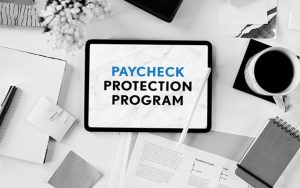Wherever there is opportunity, there are scammers, and this has proved to be the case with the U.S.’s Paycheck Protection Program (PPP) under the $2 trillion Cares Act offered in April this year.
Providing assistance in the form of forgivable loans to small businesses suffering due to the consequence of the pandemic, such as restaurants and beauty salons, this program intended to help keep these businesses afloat until they could operate again. However, the program quickly fell into hot water when it was accused of moving too slowly and being too exclusive. As a result, the government opened the program up to fintechs to help speed up the process that traditional banks were originally handling. Unfortunately, this posited an opportunity for scammers.
According to an article by Bloomberg, the PPP delegated the funds to traditional banks who prioritized existing customers to avoid fraud or money laundering. This saw small businesses, without prior banking relationships set up, rallying hard and fast for their piece of the funds. Fintech emissaries came to their rescue by appealing to authorities, offering to access vulnerable businesses, and utilizing data and technological innovations to speed up the process of issuing loans. Although two-thirds of the first round of $349 billion had been allocated at that point, an additional $320 billion was made available for the second round, which fintechs processed the majority of.
In that second round, companies such as Kabbage, who’d never before processed SBA loans, outpaced big banks to be the second highest PPP lender by application volume. Loans processed by Kabbage (75% of which were approved) were offered “without human intervention or manual review.” The average approval time was four hours.
Fintechs reportedly administered 75% of the approved loans that fall under fraud, according to Bloomberg, despite only processing 15% of the total amount. Fraudulent applications listed companies without social media presence or legitimate business addresses. Some did not even have websites, which a quick Google search would uncover. In one case, a bogus company in Texas was approved for a $3 million loan.
It is unclear what will be done about the recouping the losses. Normally, firms attempting to automate underwriting are responsible, but since these loans are 100% guaranteed by the SBA, tax payers may bear the brunt. Wendy Cai-Lee, Chief Executive Officer of Piermont Bank shared, “The SBA said, ‘We want this thing to be out there, and as long as they stick with the forms, we’re not holding the lenders or the banks accountable”. She adds it was the “perfect program for fintechs” as “it was about volume and getting it done in a very short period of time.”
Chief operating officer of IDM, John Chung sums up the dilemma neatly. “When you’re dealing with small businesses, information is often scattered and disparate” offering prime opportunity for scammers. “When you put it together with the SBA trying to get the money out their quickly, it’s a recipe for disaster,” he said.
























